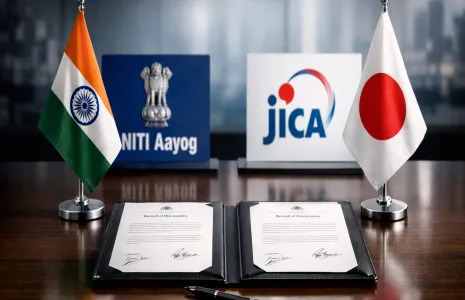Schedule a Call Back
Buyers move Supreme Court against government move to tweak Insolvency Code

The Supreme Court on January 13, 2020, started hearing a bunch of petitions, which challenge the Centre?s move to make amendments in the Insolvency Code, making it difficult for individual buyers to launch action against real estate builders.With an aim to prevent ?frivolous triggering? of insolvency proceedings and to safeguard the interests of companies taking over a stressed firm after the resolution process, the Union Cabinet, on December 11, 2019, approved several amendments to the over three-year-old insolvency code.Among other decisions, the government introduced a provision in the law that introduced a threshold of at least 10 per cent of homebuyers in a project or 100 of the total allottees for initiating corporate Insolvency Resolution Process (IRP) against a builder.This is the fourth time that the Insolvency and Bankruptcy Code (IBC) is being amended, after being introduced in 2016. Apart from an amendment in various sections, a new Section, 32A, is also being introduced in the Code. The Bill seeks to amend Sections 5(12), 5(15), 7, 11, 14, 16(1), 21(2), 23(1), 29A, 227, 239 and 240.According to Proptiger.com, the amendment in Section 7 of the Code may curb an individual homebuyer?s freedom to initiate corporate insolvency proceedings against a builder. The 10-per-cent threshold could make it difficult for small creditors to initiate insolvency proceedings, by ensuring that the IBC is not invoked for small amounts.There have been several instances in the recent past, where individual homebuyers have moved the National Company Law Tribunal (NCLT) to launch insolvency proceedings against a builder.The position of companies that take over another company after a resolution process under the Insolvency Code also stands more protected now. Under the Insolvency and Bankruptcy Code (Second Amendment) Bill, 2019, which may be introduced in the ongoing session of Parliament, enforcement agencies will be prohibited from attaching assets of companies acquired by a successful bidder after a resolution process, for the criminal offences committed by the previous owners. In several instances, the Enforcement Directorate and other central and state agencies have seized assets of stressed companies, even after the resolution process.Says a Proptiger.com report: By amending Section 29A, the government will also significantly limit the number of companies that can bid for the ownership of a stressed company. The Code already prohibits defaulting promoters and related parties from taking part in a resolution process. Through this amendment, the definition of the ?related parties? is likely to be widened.In what could come as a major relief for stresses companies, the Cabinet has also decided that the licences, permits, concessions and clearances granted to the corporate debtors cannot be terminated or suspended or not renewed during the moratorium period.To boost funding in the financially stressed sectors, the Cabinet has also approved amendment in the Code to protect last-mile funding. ?The amendments in the Code aim to remove certain difficulties being faced during insolvency resolution process to realise the objects of the Code and to further ease of doing business,? the government said in its official release.


Subscribe Now
Subscribe to our Newsletter & Stay updated
RECENT POSTS
Popular Tags
Folliow us
Related Stories
Operational Excellence Redefined!
Operational excellence in cement has moved far beyond the old pursuit of ‘more tonne’. The new benchmark is smarter, cleaner, more reliable p...











